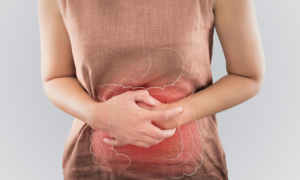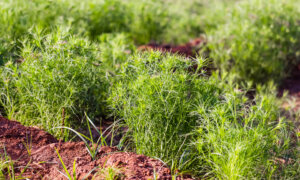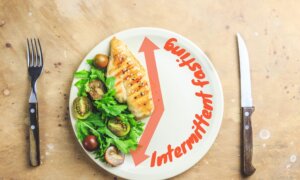Why do some people still suffer from chronic constipation despite consuming an adequate amount of vegetables? What specific dietary choices can they make to alleviate their symptoms? Dr. Yun-Ni Jong, an esteemed colorectal surgeon, provides expert guidance on this matter. She has identified the top 10 foods known to facilitate bowel movements and offers insightful recommendations on how to sustain intestinal well-being, ultimately reducing the likelihood of constipation.
Are You Constipated?
What defines constipation? How many bowel movements per day are considered normal? According to Dr. Jong, the normal range for bowel movements is quite broad, from three times a day to once every three days. Completing a bowel movement within seven minutes is normal. However, some people, even though they have a bowel movement every day, still sit on the toilet for seven to 10 minutes without passing stool which is considered constipation.
3 Types of Constipation
Dr. Jong explained that constipation can generally be categorized into three types. We can self-assess to determine which type we experience.
1. Slow transit constipation: This type of constipation is common among the elderly, as intestinal motility slows down with age. Even if the quality of the stool is good, the excessively slow movement of the intestines makes it difficult to pass stool.
2. Outlet constipation: When the body feels the urge to have a bowel movement but misses the opportunity because of busyness, the intestines become sluggish, resulting in difficulty passing stool.
3. Irritable bowel syndrome with constipation: Some people have irritable bowel syndrome with constipation. Others experience mixed/alternating episodes of diarrhea and constipation when under high stress or pressure in their daily lives, which may be referred to as spastic colon.
Choosing Foods Based on Stool Analysis
Dr. Jong said that her constipated patients often ask, “Should I push with my abdomen or with my anus when passing stool?” She clarified that the key to a bowel movement is not to exert force but rather, when you feel the urge, simply relax the anus, and stool will pass naturally.
She said she believes that constipation ultimately stems from diet, as stool consistency determines whether bowel movements are smooth. Therefore, eating plenty of vegetables and fruits is the key to treating constipation.
To produce well-formed stools, it is recommended to maintain a vegetable-to-fruit ratio of 2:1. This is because vegetables, rich in insoluble fiber, create a loose framework for stools, aiding in their rolling and propulsion in the intestines. Fruits, rich in soluble fiber, keep stools moist, allowing them to pass smoothly and easily.
For those experiencing incomplete or irregular bowel movements, what foods might help? Dr. Jong suggests observing the stool in the toilet. If it appears pellet-like, rough, and causes discomfort while expelling, it indicates a lack of fruits rich in soluble fiber, leading to inadequate water content in the stool. If the stool is soft and mushy but requires effort to pass, it indicates a lack of insoluble fiber to form the shape of the stool.
Top 10 Foods That Promote Bowel Movement
- Cauliflower
- Spinach
- Sweet potato leaves
- Mushrooms (particularly wood ear)
- Agar (made from seaweed)
- Kiwi
- Dragon fruit
- Guava
- Bananas
- Yogurt
Dr. Jong outlined some of the best foods for promoting bowel movements, including green vegetables such as cauliflower, spinach, and sweet potato leaves; mushrooms such as shiitake and wood ear, with wood ear being particularly rich in natural dietary fiber and soluble fiber; agar (also known as agar or agar-agar) jelly made from seaweed; and fruits such as kiwi, dragon fruit, and guava. These foods are healthy and can help promote smooth bowel movements. Additionally, eating yogurt is a great way to supplement probiotics.
Dr. Jong recommends cooked vegetables over raw ones. This is because the fibers in raw vegetables are generally finer, and they are more voluminous, taking up a lot of space. As a result, eating just a little can make you feel full, limiting your intake. On the other hand, cooked vegetables shrink in volume, allowing you to eat more at once.
When it comes to fruit, bananas, and dragon fruit are rich in soluble fiber, while kiwi contains both soluble and insoluble fiber. Studies have shown that kiwi contains approximately one-third soluble fiber and two-thirds insoluble fiber, which precisely matches the fiber ratio needed to produce well-formed stools.
Research has also found that the oligosaccharides in dragon fruit have a prebiotic property. They can improve gut health by selectively stimulating the microbiota in the colon, and altering the composition of the microbiota can affect intestinal motility. Animal studies have shown that oligosaccharides in dragon fruit can promote the contraction of colonic smooth muscles and increase fecal output, thereby promoting gut health in multiple ways.
Some people eat yogurt as a “quick fix” for constipation. However, Dr. Jong stated that those who immediately feel the urge to pass stool after having yogurt may be lactose intolerant. In such cases, yogurt can cause diarrhea and potentially harm the intestines and anus, so it is not advisable for these individuals to eat dairy products.
Dr. Jong emphasized the importance of eating sufficient vegetables and fruits, noting that the consumption of meat or eggs is less relevant when it comes to addressing constipation.
Additionally, Dr. Jong highly recommends staying hydrated by drinking plenty of fluids daily, roughly 67 fluid ounces to 84 fluid ounces, in addition to eating enough vegetables and fruits. Fruit juice and soup are both good options. However, coffee and tea do not count toward this fluid intake, as they contain diuretic substances that can dehydrate the body. Therefore, coffee and tea drinkers should be especially mindful to stay adequately hydrated.
Ways to Nourish Gut Microbiota
Dr. Jong advocates for patients to primarily use natural foods to relieve constipation. If this is not enough, they can also try probiotics, fiber powders, or enzymes. However, she stressed that probiotics are not laxatives and should not be taken only when constipated.
“Probiotics are living organisms that need to be nurtured in your gut,” Dr. Jong explained. She suggests starting with one type of probiotic for three weeks while consuming plenty of vegetables and fruits to nurture the bacteria. If you notice an improvement in your bowel movements, you can continue taking it for three months with adequate vegetable and fruit intake. After this, the bacteria should be well-established, and you can stop taking probiotics while maintaining a diet rich in vegetables and fruits. If you do not notice any improvement after three weeks, the probiotic strain may not be right for your gut. You can take note of its name and try a different one next time.
She also noted that apart from probiotic supplementation, there are ways to improve gut microbiota, with exercise being a particularly effective method. Studies have found that regular exercise can increase the number of microbial species and promote the production of beneficial substances for gut health, such as butyrate. Exercise can also help prevent changes in gut permeability, reducing the risk of harmful substances entering the bloodstream.
No Need to Worry About Stool Buildup
Many individuals suffering from constipation are concerned about the potential for stool accumulation, which can cause fecal impaction, bloating, and toxin buildup. However, Dr. Jong clarifies this common misconception, explaining that under normal circumstances, stool passes through the body within 24 to 48 hours. Therefore, the concept of “accumulated stool” should not be a source of excessive worry.
Dr. Jong said she believes that the presence of toxins in stool indicates dietary issues, such as excessive consumption of grilled or fried foods, and processed foods. These substances can irritate the intestines, leading to chronic inflammation. With fewer bowel movements, inflammatory substances linger longer in the intestines, increasing the risk of polyps, lesions, and even colorectal cancer.
On the contrary, maintaining healthy eating habits with plenty of vegetables and fruits can support good health even with a bowel movement only every two to three days. Additionally, vegetables and fruits promote the growth of beneficial gut bacteria, enhancing the gut’s ability to resist the chronic inflammation triggered by occasional unhealthy food consumption. This, in turn, reduces the risk of developing intestinal diseases such as colitis or colorectal cancer.
Maintaining Healthy Bowel Movements Without Medication
If none of the above methods works, the last resort is to consider stool softeners, laxatives, or enemas. However, these methods carry the risk of causing harm to the intestines and should not be used frequently. While some people with constipation may find relief from an enema, Dr. Jong warns against overreliance on this method. This is because enemas can overstimulate the intestines, leading to mucosal irritation. Prolonged irritation can result in fibrosis and hardening of the intestinal tissues, reducing anal sensitivity and exacerbating constipation symptoms.
She emphasized once again that for those experiencing constipation, it is advisable to first increase their intake of vegetables and fruits. If that does not help, they could try using fiber supplements, mild stool softeners, laxatives, or enemas prescribed by a doctor as a last resort.
As mentioned above, in addition to diet, exercise is also a great way to improve bowel movements. For those who regularly go for a walk, it is recommended to increase the walking pace, aiming for a frequency of at least three times a week. Additionally, commuters can consider extending their walking distance for more exercise. Other aerobic activities such as running, swimming, and gymnastics are also beneficial.
Lastly, squatting can facilitate smoother bowel movements. This is because the sigmoid colon is S-shaped, and the squatting position straightens the colon, easing the passage of stool. When using a sitting toilet, elevating your feet with a small stool can simulate a squatting posture, thereby promoting smoother bowel movements.


















